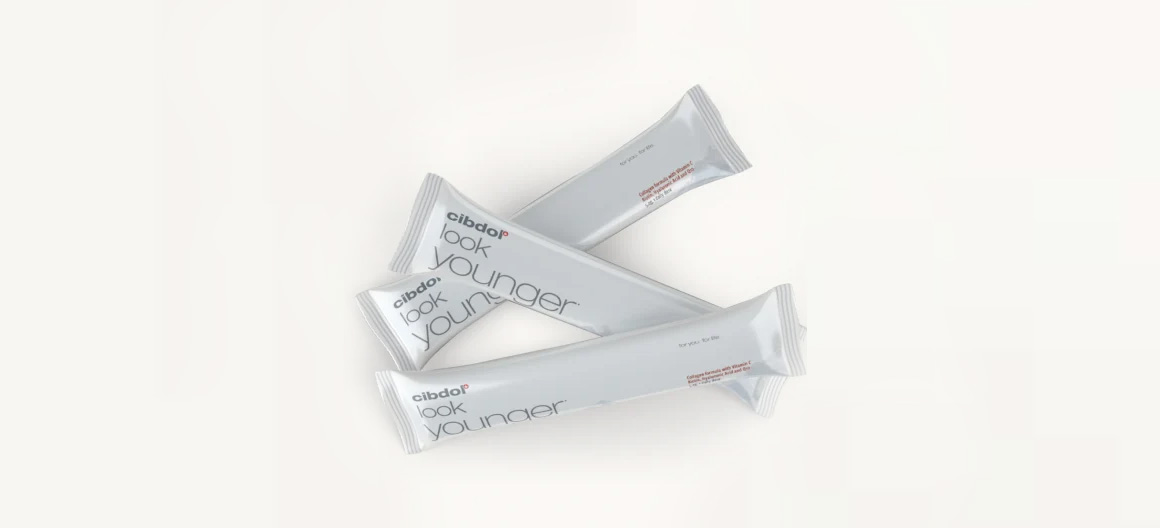What Happens When You Stop Taking Collagen?
Collagen supplements are popular for beauty, joint, and athletic performance goals. Collagen provides the structural proteins that keep skin firm, bones strong, and connective tissues robust. But our natural collagen production declines with age. Supplements derived from animal parts like hides and fish scales provide collagen from external sources.
Contents:

With regular use, collagen supplements may deliver benefits like:
- Improved skin elasticity, hydration, and dermal density
- Stronger nails and healthier hair
- Reduced joint discomfort and arthritis
- Faster recovery from injury and exercise
- Lean muscle mass retention during aging and dieting
- Relief of gut inflammation for conditions like leaky gut
However, collagen supplements aren’t necessarily intended for lifelong use. You may get the results you want after a set period of supplementation. Or cost, digestive side effects, changing needs, or other factors may cause you quit.
What happens when you stop taking collagen after regular use? Do the effects disappear quickly or remain for some time? Let’s analyze how interrupting supplementation may impact collagen levels throughout the body.
Skin and Connective Tissue Changes
Research indicates the skin and connective tissue benefits of collagen supplements plateau around the 6 month mark for most users. Beyond that point, continued supplementation simply helps maintain gains.
This means quitting collagen after at least 6 months of regular use should allow skin results like wrinkle reduction, hydration, and elasticity to persist for some time. One key study found stopping collagen after 6 months still maintained increased skin collagen density for 12 weeks after discontinuation versus placebo.
However, eventually stopping collagen will remove the extra support for your body’s natural collagen networks. Skin and connective tissues supported by supplemental collagen are once again vulnerable to declining collagen production as you continue to age.
So at some point, from around 3-6 months after quitting daily collagen use, you can expect:
- Skin becoming drier and less firm
- More fine lines, wrinkles, and sagging
- Weaker, more brittle nails
- Thinner, drier hair prone to breakage
- Stiff or cracking joints as tendons lose elasticity
- Possible cellulite rebound as connective fibers degrade
The visible decline will happen gradually. But discontinuing collagen means the loss of its benefits over time. Consistent, long-term use seems necessary to maintain results.
Joint and Injury Recovery Changes
Collagen helps repair exercise-induced muscle damage. It provides amino acids to rebuild stressed or torn tissues. Many users specifically take collagen to ease joint discomfort and improve workout recovery times.
Quitting collagen could potentially set you up for:
- Increased post-workout muscle soreness and fatigue
- Stiff, achy joints after exercise or upon waking
- Longer recovery times after injuries or heavy training
- Greater joint discomfort when walking or moving
- Possible decline in athletic performance from reduced collagen support
However, one study found waiting 6 months after stopping collagen still maintained benefits for knee joint pain during activity versus placebo. So it’s possible the positive effects remain for a period before deteriorating.
But just like skin and hair, eventually your tendons, ligaments, and muscles will start losing the additional scaffolding provided by supplemental collagen peptides. This leaves them more susceptible to pain and damage again.
Nutritional and Lifestyle Considerations
Keep in mind other nutritional and lifestyle factors also influence natural collagen production, not just supplements.
After quitting collagen, the following steps become even more important for maintaining collagen levels:
- Eat collagen-boosting foods like bone broth, citrus fruits, berries, leafy greens, garlic, onions, and seeds.
- Make sure you get adequate protein, vitamins C, A, and E, zinc, copper, and antioxidants in your diet - all essential for collagen synthesis.
- Do regular strength training and weight-bearing exercise to stimulate collagen growth factors.
- Manage stress levels since cortisol decreases collagen.
- Avoid excessive sun exposure which breaks down skin collagen.
- Limit or quit smoking, excessive alcohol, and refined sugar intake which degrade collagen.
Making up for lost supplemental collagen with whole foods, nutrients, and lifestyle factors can help counteract deteriorating effects after quitting. But dietary collagen cannot fully replace high-dose supplements.
Restoring Depleted Collagen Stores
If you stop collagen supplements for an extended period, is it possible to rebuild lost collagen levels by restarting?
Research specifically on reintroducing collagen after long breaks is lacking. But evidence suggests:
- Skin, joint, and muscle collagen density can be rebuilt with consistent supplementation based on results of first-time users.
- It may take longer to notice benefits again after an extended discontinuation due to chronically depleted collagen.
- Previously attained peaks in collagen biomarkers or physical function may eventually be restored with renewed, patient supplementation.
- Cycling collagen by alternating 3-6 month periods on and off may help avoid major dips after each off phase.
Be prepared to commit to daily collagen again for 2-6+ months when restarting after a long lapse. Get regular medical checkups to ensure your protocol aligns with any changes in your health, medication, or nutritional needs. Revisit your original dose and timing schedule that previously delivered good results.
Additional Considerations
A few other factors to keep in mind when quitting daily collagen supplementation:
- If you experienced gastrointestinal side effects like heartburn, bloating, or diarrhea from collagen, these symptoms will likely subside after stopping.
- Any immune or allergy issues, rashes, headaches, or taste/smell sensitivities from collagen exposure will resolve after quitting.
- You may observe changes like improved kidney or liver function if those organs were being overtaxed by high collagen doses or bioaccumulation.
- Without extra collagen, your body must work harder to rebuild worn cartilage and tendons through natural processes instead.
- Your doctor may periodically recheck biomarkers like serum collagen or cartilage oligomeric matrix protein after discontinuation to monitor your status.
Discontinuing collagen can provide relief from various side effects or organ stress. But it leaves your body more prone to connective tissue breakdown again. Inform your doctor of your decision to stop supplementation in case they need to adjust any health monitoring.
What Happens When You Stop Taking Collagen? Conclusion
If you cease taking collagen supplements after consistent daily use, expect the skin, joint, and recovery benefits to gradually diminish over 3-6 months. Eventually your natural collagen production will start declining again without supplemental support.
Maintain a collagen-rich diet and lifestyle, or consider cycling on-and-off collagen periods, to help counteract reductions. It’s likely possible to rebuild collagen stores by restarting diligent supplementation after an extended break. But this process may take longer than initial results.
Talk to your doctor before discontinuing collagen, especially if used at their recommendation. Stopping provides relief from any side effects or organ stress. But the loss of benefits over time reinforces the often long-term nature of collagen supplementation for continued gains.
Resources used to write this article
Asserin, J., Lati, E., Shioya, T., & Prawitt, J. (2015). The effect of oral collagen peptide supplementation on skin moisture and the dermal collagen network: evidence from an ex vivo model and randomized, placebo-controlled clinical trials. Journal of cosmetic dermatology, 14(4), 291-301. https://doi.org/10.1111/jocd.12174
Elam, M. L., Johnson, S. A., Hooshmand, S., Feresin, R. G., Payton, M. E., Gu, J., ... & Arjmandi, B. H. (2015). A collagen supplement improves skin hydration, elasticity, roughness, and density: Results of a randomized, placebo-controlled, blind study. Nutrients, 7(12), 10230-10242. https://doi.org/10.3390/nu7125528
Guillerminet, F., Beaupied, H., Fabien-Soule, V., Tomé, D., Benhamou, C. L., Roux, C., ... & Bichon, E. (2010). Hydrolyzed collagen improves bone metabolism and biomechanical parameters in ovariectomized mice: an in vitro and in vivo study. Bone, 46(3), 827-834. https://doi.org/10.1016/j.bone.2009.10.036
Handa, O., Yoshida, N., Fujita, T., Tanaka, Y., Umino, T., Fukunaga, A., ... & Nishigori, C. (2016). Molecular effects of oral collagen peptide supplementation on skin ageing: Results from a double-blind, placebo-controlled suction-blister study. Journal of medicinal food, 19(12), 1163-1166. https://doi.org/10.1089/jmf.2016.0022
Inoue, N., Sugihara, F., & Wang, X. (2016). Ingestion of bioactive collagen hydrolysates enhance facial skin moisture and elasticity and reduce facial ageing signs in a randomised double-blind placebo-controlled clinical study. Journal of the Science of Food and Agriculture, 96(12), 4077-4081. https://doi.org/10.1002/jsfa.7606
König, D., Oesser, S., Scharla, S., Zdzieblik, D., & Gollhofer, A. (2018). Specific collagen peptides benefit the biosynthesis of matrix molecules of tendons and ligaments. Journal of the International Society of Sports Nutrition, 15(1), 1-10. https://doi.org/10.1186/s12970-017-0224-1
Proksch, E., Schunck, M., Zague, V., Segger, D., Degwert, J., & Oesser, S. (2014). Oral intake of specific bioactive collagen peptides reduces skin wrinkles and increases dermal matrix synthesis. Skin Pharmacology and Physiology, 27(3), 113-119. https://doi.org/10.1159/000355523
Shaw, G., Lee-Barthel, A., Ross, M. L., Wang, B., & Baar, K. (2017). Vitamin C–enriched gelatin supplementation before intermittent activity augments collagen synthesis. The American journal of clinical nutrition, 105(1), 136-143. https://doi.org/10.3945/ajcn.116.138594
Zague, V. (2008). A new view concerning the effects of collagen hydrolysate intake on skin properties. Archives of dermatological research, 300(9), 479-483. https://doi.org/10.1007/s00403-008-0895-7
Sign up to our newsletter and enjoy 10% off one order
YOU MIGHT ALSO LIKE
Post related products
-

Look Younger CIBD0073


















